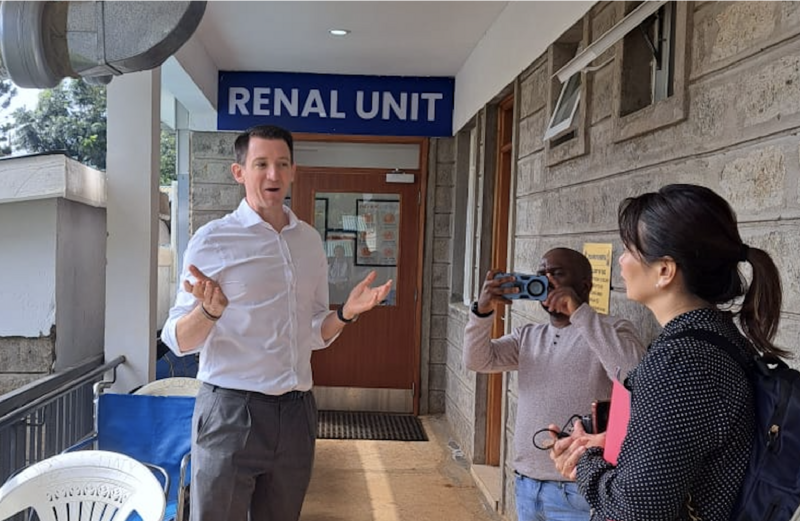Home Grown Solutions Accelerator - Alumni support brainstorm discussion with AUDA-NEPAD and other stakeholders

The Home Grown Solutions (HGS) Accelerator for Pandemic Resilience is an initiative that aims to accelerate the growth of African healthcare companies to strengthen the continent’s pandemic resilience, in line with the African Union's Energize Africa Initiative and Agenda 2063 aspirations. This is achieved through offering hands-on and tailored support to early-, growth- and mature stage healthcare businesses. The African Union Development Agency (AUDA-NEPAD) founded the Accelerator initiative, support by the Japan International Cooperation Agency (JICA), the official development assistance agency of the Government of Japan.
Following the pilot in 2021 supporting 5 East African HGS, the initiative was successfully expanded across Africa in 2022, where it assisted its second cohort of 14 HGS, followed by the 3rd round in 2023 supporting 9 HGS. Across the years, these consisted of DrugStoc, MdaaS Global, Revital, Rology, Sinapi and Zuri Health, among others, assisted by a supporting network that includes the likes of World Food Programme, Africa CDC, GIZ, Rwandan Development Board, CSIR, AAIC, Ecobank Foundation, Aga Khan Foundation, World Health Organization, UNIDO, Afreximbank and others.
The initiative has received further support from the African Development Bank (AfDB) through its Fund for African Private Sector Assistance (FAPA). The objective is to enable AUDA-NEPAD to sustain, scale and execute the HGS Accelerator in healthcare whilst simultaneously facilitating increased manufacturing capacity and regional integration.

As part of this support, the initiative aims to provide additional assistance to selected HGS alumni to address their key challenges around access to affordable capital; tailored advice; connecting to appropriate partners through operationalizing of HGSA by a combination of in-house (AUDA-NEPAD) and external technical assistance capacity.
To identify areas of alumni support, some of the HGS alumni and other stakeholders from AUDA-NEPAD, JICA, Villgro Africa and BCG came together in Nairobi on the 22nd of April 2022, brainstorming 8 elements of alumni support. These include providing context-specific support beyond the standard assistance given during the accelerator program; having a mentorship marketplace to enable HGS to contact experienced mentors; expanding the training curriculum beyond the existing offering; investor engagement including demo events and a digital platform for engagements that centralizes communication, resource sharing, and progress tracking.
In addition, providing additional specific technical support for scaling ventures, and small, milestone-based financial support alongside continued introductions to partners such as government regulatory bodies, universities for research collaboration, or industry-specific advisors would enable HGS to expand their support ecosystem. These partnerships can provide alumni with critical insights, facilitate market entries, enhance product development through academic collaboration, and ensure compliance with industry regulations.
Overall, this demonstrates the growth of the HGS accelerator and its potential as we aim to strengthen healthcare systems across the continent.
